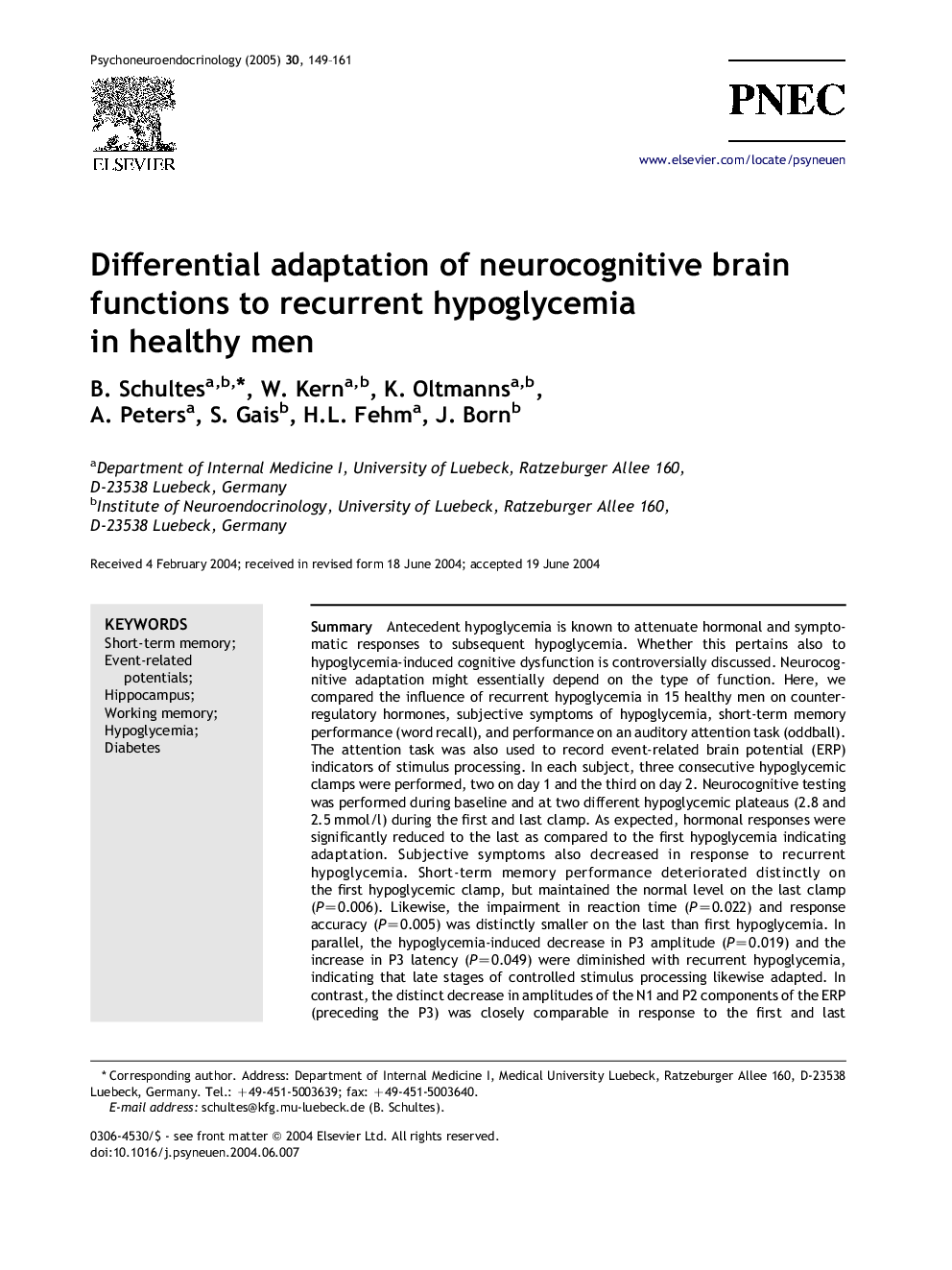| Article ID | Journal | Published Year | Pages | File Type |
|---|---|---|---|---|
| 10306192 | Psychoneuroendocrinology | 2005 | 13 Pages |
Abstract
Antecedent hypoglycemia is known to attenuate hormonal and symptomatic responses to subsequent hypoglycemia. Whether this pertains also to hypoglycemia-induced cognitive dysfunction is controversially discussed. Neurocognitive adaptation might essentially depend on the type of function. Here, we compared the influence of recurrent hypoglycemia in 15 healthy men on counterregulatory hormones, subjective symptoms of hypoglycemia, short-term memory performance (word recall), and performance on an auditory attention task (oddball). The attention task was also used to record event-related brain potential (ERP) indicators of stimulus processing. In each subject, three consecutive hypoglycemic clamps were performed, two on day 1 and the third on day 2. Neurocognitive testing was performed during baseline and at two different hypoglycemic plateaus (2.8 and 2.5Â mmol/l) during the first and last clamp. As expected, hormonal responses were significantly reduced to the last as compared to the first hypoglycemia indicating adaptation. Subjective symptoms also decreased in response to recurrent hypoglycemia. Short-term memory performance deteriorated distinctly on the first hypoglycemic clamp, but maintained the normal level on the last clamp (P=0.006). Likewise, the impairment in reaction time (P=0.022) and response accuracy (P=0.005) was distinctly smaller on the last than first hypoglycemia. In parallel, the hypoglycemia-induced decrease in P3 amplitude (P=0.019) and the increase in P3 latency (P=0.049) were diminished with recurrent hypoglycemia, indicating that late stages of controlled stimulus processing likewise adapted. In contrast, the distinct decrease in amplitudes of the N1 and P2 components of the ERP (preceding the P3) was closely comparable in response to the first and last hypoglycemia (P>0.3). Together results indicate an adaptation to recurrent hypoglycemia for signs of controlled stimulus processing presumably involving hippocampo-prefrontocortical circuitry, while earlier automatic stages of processing appear to be spared.
Related Topics
Life Sciences
Biochemistry, Genetics and Molecular Biology
Endocrinology
Authors
B. Schultes, W. Kern, K. Oltmanns, A. Peters, S. Gais, H.L. Fehm, J. Born,
